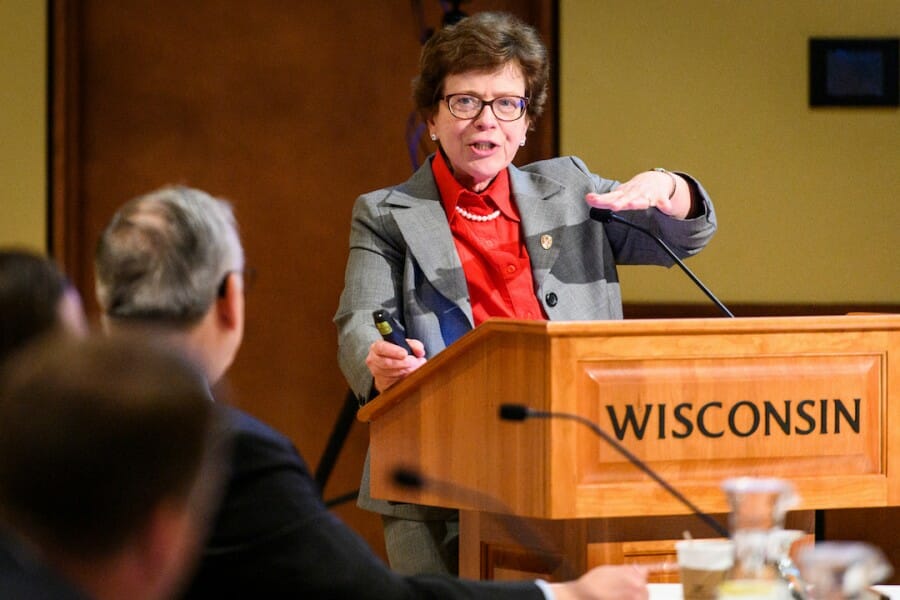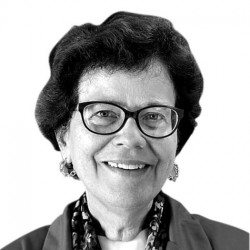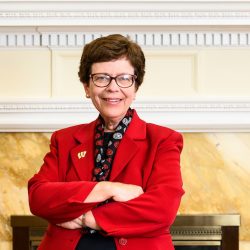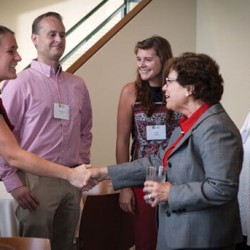Chancellor Blank’s To-Do List
Flexibility, accessibility, research, and faculty: Blank lays out her priorities.
One thing was clear in Chancellor Rebecca Blank’s February address to the UW Board of Regents: the landscape of higher education is changing rapidly, and UW–Madison must keep up to maintain its status as a top public research institution.
Blank outlined several key goals and investments for the university. One is to build on educational outcomes by offering greater flexibility for students. An increase in online courses is helping students meet credit requirements while they’re studying abroad or doing an internship. The UW is exploring all-online degree programs for nontraditional students, with the hope of developing at least one undergraduate program by 2020. It’s expanding early-start programs, which allow incoming freshmen to earn credits during the summer, and rolling out gap-year programs, which will accommodate those who earn admission but wish to delay full enrollment so they can travel, work, or volunteer.
A second priority is accessibility. The UW established Bucky’s Tuition Promise last year to reduce the financial burden on low- and middle-income families. Four years of tuition is now covered for any incoming Wisconsin student whose family’s household income is below the state median of $58,000. Noting that the university has tripled its investment in scholarships over the past 10 years, Blank said that it still faces shrinking state and federal aid. “I want every student who can qualify for admission to UW–Madison to be able to afford to come,” she said.
Blank identified research as an area of concern, with the UW’s expenditures lagging behind its peers over the past decade. Despite an 11 percent increase in research dollars during the past two years, the UW has dropped to sixth in national research expenditures, following decades among the top five universities. To address the trend, the UW is increasing stipends to attract top graduate students and establishing industry partnerships with the likes of GE Healthcare, Johnson Controls, and Foxconn.
Above all, the quality of the university “rests on its faculty,” Blank said. A cluster-hire program, which recruits cross-disciplinary faculty members with aligned interest in high-demand research areas, will hire more than 50 faculty members over five years. Another program is giving departments new tools and financial support to recruit faculty members from underrepresented groups in their respective fields. The biggest barrier remains the lack of competitive pay. “We’re number 14 of the 14 Big Ten schools,” Blank said, noting that UW professors earn, on average, 10.4 percent less than those at peer institutions. “That does not reflect our reputation and our strength.”
All of these key areas, Blank said, require reinvestment from the university as well as a renewed commitment by the state. She concluded by quoting former U.S. Senator Daniel Patrick Moynihan: “If you want to create a great city” — and a great state, she added — “first create a great university, and then wait 100 years.”
Preston Schmitt ’14 is a senior staff writer for On Wisconsin.
Published in the Summer 2019 issue




Comments
No comments posted yet.